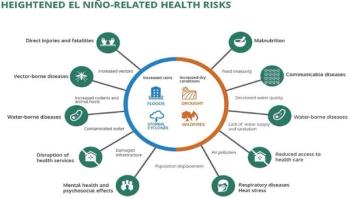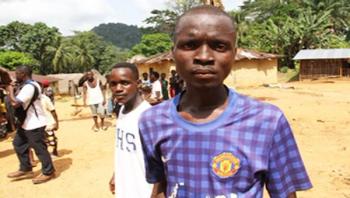
News




El Niño is a warming of the central to eastern tropical Pacific Ocean which affects rainfall patterns and temperatures in many parts of the world but most intensely in the tropical regions of Africa, Asia-Pacific, and Latin America which are particularly vulnerable to natural hazards. Typically, some places receive much more rain than normal while others receive much less.

There are more than 10,000 survivors of Ebola virus disease (EVD). A number of medical problems have been reported in survivors, including mental health issues. Ebola virus may persist in selected body compartments, most notably in the semen of males. Ebola survivors need comprehensive support for the medical and psychosocial challenges they face and also to minimize the risk of continued Ebola virus transmission, especially from sexual transmission.


Black Death, a mid-14th century plague, is undoubtedly the most famous historical pandemic. Within only five years it killed 30 percent to 50 percent of the European population. Unfortunately it didn't stop there. Plague resurged throughout Europe leading to continued high mortality and social unrest over the next three centuries.

There may be a "silver bullet" for Ebola, a family of hemorrhagic viruses, one of which has killed more than 11,000 people in West Africa in the past two years. Researchers at Vanderbilt University Medical Center and the University of Texas Medical Branch in Galveston (UTMB) reported today in the journal Cell that they have isolated human monoclonal antibodies from Ebola survivors which can neutralize multiple species of the virus.



While most West Nile Virus (WNV) infections in humans are asymptomatic and go unnoticed, the virus causes serious and sometimes fatal neurologic illness in some people. A study published on January 21 in PLOS Pathogens suggests that an exaggerated and abnormal immune response contributes to the development of neurologic symptoms following West Nile virus infection.




In use for more than 20 years, the varicella zoster virus vaccine for chickenpox and shingles is considered an essential medicine by the World Health Organization (WHO). However, researchers from the University of Missouri School of Medicine have found, in rare instances, a link between the vaccine and corneal inflammation. It is a finding the researchers say should be discussed by primary care physicians and patients with a history of eye inflammation before getting vaccinated.

Researchers at Duke Health are fine-tuning a test that can determine whether a respiratory illness is caused by infection from a virus or bacteria so that antibiotics can be more precisely prescribed.












